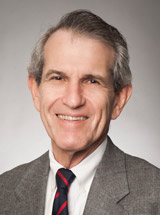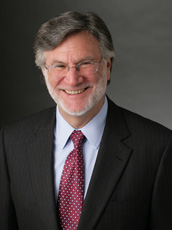I will propose that widespread acceptance of the suitability of a 3 year medical undergraduate education would be a profound error for three main reasons. First, it has been attempted before by many U.S. medical schools and it was an abysmal failure and abandoned by the beginning of the 21st century. Second, in an era of an explosion in biomedical research and knowledge, the idea that less education is sufficient flies in the face of simple logic and echoes the mistakes of the past in such an attempt. In fact, residency program directors have bemoaned the poor preparation found in many of their recent trainees. Third, the prediction that a shortened medical school duration would lead to increased numbers of primary care physicians is not supported by past evidence and ignores the dualistic nature of primary care medicine: the provision of preventative medical advice and the management of complex, typically chronic, medical problems. The former does not require utilizing physicians to accomplish the task and the latter requires a broadly trained and expert physician who likely needs even more training than is currently the norm.
I will also propose, in response to the deficiencies of current training, a renewed focus on the curricular goals of the fourth year of medical school as a means of corrected current deficiencies in training.
Presenter Bios
Dr Goldfarb, a graduate of Princeton University and the University of Rochester School of Medicine, is a nephrologist and Professor of Medicine and Associate Dean for Curriculum at the Perelman School of Medicine at the University of Pennsylvania in Philadelphia, Pennsylvania. In that role he supervises all aspects of the medical student curriculum, chairs the curriculum committee, supervises the medical student scholarly pursuit program in clinical investigation, and serves on the Student Standards Committee and chairs the School of Medicine Teaching Awards Committee. He supervises the Medical Student Course in Health Care Systems.
From 1992 to 1997,Dr. Goldfarb was the Chief Medical Officer of the Graduate Health System in Philadelphia, a 7 hospital system with a 100,000 member HMO and a 100 physician primary care network. In that capacity he developed a clinical trial network, an office of quality improvement and outcome measures, and a multi-site closed circuit video system to provide cross institutional education.
Dr. Goldfarb has served as program director of the NIH sponsored General Clinical Research Center at Penn and was the interim chair of the Department of Medicine at Penn for 2 1/2 years. He has also served on the ABIM subspecialty board on Nephrology and been a member of the Board of Regents of the American College of Physicians. He is a member of the American Society of Clinical Investigation.
He has been the recipient of numerous awards, including the Laureate Award from the Pennsylvania Chapter of the American College of Physicians and the Christian and Mary Lindback award for distinguished teaching from Penn.
Dr Goldfarb has over 100 original publications and has edited 2 books.. He served on the editorial board of the Journal of Clinical Investigation, American Journal of Kidney Disease, Diabetes, Journal of the American Society of Nephrology, and Clinical Nephrology and is the immediate past Editor in Chief of NephSAP, an official journal of the American Society of Nephrology.

